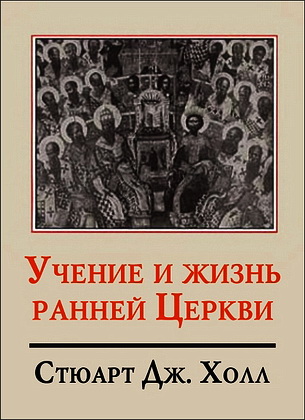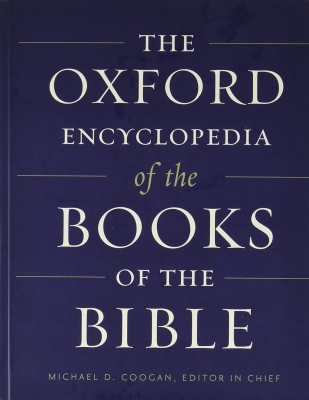
Lockyer - All the Angels in the Bible
Herbert Lockyer - All the Angels in the Bible
Peabody, MA: Hendrickson Publishers, 2015. – 192 p.
eBook ISBN 978-1-61970-674-3
This is a book of angel stories. It describes in detail angelic encounters with men and women through thousands of years—from our first parents, Adam and Eve, in the Garden of Eden, to the last words of angels spoken to the apostle John during his imprisonment on the remote island of Patmos. This is about all the angels in the Bible, their nature and their ministry. During the past fifty years in my ministry as mission executive and pastor I have spoken with many who have seen angels. Some years ago I was invited to speak through an interpreter in the morning service at the Rift Valley Academy near Nairobi, Kenya, Africa. A native Mau Mau told this story after he accepted Christ in the service:
One dark night the men of the Mau Mau tribe were climbing the hill up to the school to capture and kill the missionary children, and fulfill one of their vows by eating a white man’s brain. Suddenly men in white robes appeared all around the school, with flaming swords, and the natives ran back down the hill. Then the new Christian asked, “Who were these men; were they angels?” A missionary replied, “We do not have enough men on the staff to surround the school, and we have no flaming swords.” With wide eyes the native shouted, “They were angels!”
We all agreed. There was no other explanation. During the late nineteenth century, there was very little interest in angels among Christians and church leaders in England and America. Professor Moses Stuart wrote in Bibliotheca Sacra, February, 1843:
Of what importance can the doctrine respecting good or evil angels be to us? We owe them, it is said, no duty or homage of worship; and as they are invisible things, if they exist at all, we can never describe with any certainty, whether or when they interpose on our behalf, or interfere for the sake of injuring us. We have, therefore, no interest in this matter.
However, with the dawning of the twentieth century, minds began to unbend and hearts began to open. During the dark days of World War I the subject of beneficial angelic activity in national life made the London newspaper headlines, with the remarkable stories told by soldiers during the retreat from the battle of Mons’ (France) on August 25, 1914.
Level-headed, trustworthy men testified to the appearance of heavenly guardians on behalf of the British Army and how great relief and deliverance was provided by heavenly intervention. Without the aid of angels, it was affirmed, the British would have been annihilated by the pursuing German army. So many hospitalized British soldiers spoke of “the secret army of Mons’” that many became believers. Christians began again to embrace the doctrine of angels as not resting on conjecture but upon the testimony of God.
* * *
Angel of the Covenant
The angel of the covenant stands,
With His commission in His hand;
Sent from the father’s milder throne
To make the great salvation known. (Isaac Watts)
“I will send my messenger, who will prepare the way before me. Then suddenly the Lord you are seeking will come to his temple; the messenger [angel] of the covenant, whom you desire, will come,” says the Lord Almighty. (Malachi 3:1)
A. Introduction
There is in Scripture the manifestation of one angel who is distinguished from all others, who is not created, and who appears as the “Angel of the Lord God” (Genesis 16:7; Exodus 23:20; Judges 6:22, and others); the “Angel of His Presence” (Exodus 33:14); the “Captain of the Lord’s Hosts” (Joshua 5:13–15); the “Angel of the Covenant” (Malachi 3:1); the “I AM” (Exodus 3:1, 6, 14). Under these various titles, this angel’s name appears over forty times in the Old Testament. He is none other than the eternal Son Himself, who anticipates His incarnation and appears for the purpose of sustaining the faith and hope of His people, and of keeping before their minds the great redemption which was to take place in the fullness of time. Sometimes, indeed, it seems doubtful whether the “Divine Being” or a created angel is alluded to, but a study of the context will enable us to decide the question.
These appearances of Christ in the Old Testament are “theophanies” (derived from two Greek words, theos “God,” and pheino “to appear”). This unique “Angel” of the Old Testament is the Logos, the Divine Word, the image of the invisible God who became God manifest in flesh (John 1:14). The truth is well expressed by John Calvin:
For though he [Christ] was not yet clothed with flesh, he came down, so to speak, as an intermediary, in order to approach believers more intimately. Therefore this closer intercourse gave him the name of angel. (Institutes, p. 133)
B. His Appearance in the Garden
In the garden in the cool of the day, our first parents hid themselves from the Divine Presence amidst the covering of the trees. God called them from their hiding place, not only to pass the sentence of judgment, but, in mercy, to give the promise of a Redeemer. This “voice of the Lord God,” (Genesis 3:8, KJV) who came down to Paradise to wrest the victory from Satan’s hands and to revive the hearts of the weeping pair, was none other than the Word of God, who came to remove the curse and to reveal the mercy of the Father by the gift of His Son (Genesis 3:15).
C. His Appearance to Hagar
Hagar, cruelly dealt with by Sarah, fled from Abraham’s tent into the wilderness. The angel found her sad, solitary and homeless by a fountain of water. He spoke quietly to her and said, “I will so increase your descendants that they will be too numerous to count” (Genesis 16:10).Who can claim the power of creation, look into the future and foretell what will come to pass? Hagar recognized in the angel one greater than a created being, and said of the angel who spoke to her, “You are the God who sees me . . . I have now seen the One who sees me” (Genesis 16:13).
D. His Appearance to Abraham
Abraham was sitting at the door of his tent in the heat of the burning noonday sun; three men appeared; he offered them hospitality. He did “not forget to entertain strangers . . . angels without knowing it” (Hebrews 13:2). One of the visitors stood out from the other two as chief in honor and greater rank. Then the Angel Jehovah said to Abraham, “Sarah your wife will have a son. . . . is anything too hard for the Lord?” (Genesis 18:10, 13). The same Angel, the Son of God, uttered a cry of mercy and grace at the offering up of Isaac (Genesis 22:11–13). Isaac himself received the promise of God from the Angel of the Lord (Genesis 26:2–5).
E. His Appearance to Moses
Moses, an exile from the Egyptian court, kept the flock of his father-in-law, Jethro, on the desert near Mt. Horeb. Suddenly one of the thorn trees of the desert was wrapped in flames, and yet the bush was not consumed. As he turned aside, he “saw that though the bush was on fire; it did not burn up,” and the Angel of the Lord said to him, “‘Do not come any closer.’ Moses hid his face because he was afraid to look at God” (Exodus 3:1–6).
F. His Appearance to Jacob
Jacob was highly honoured by the visitation of this divine messenger on leaving home (Genesis 28:3, 4), at Bethel (Genesis 28:10–22), at Peniel (Genesis 22:32), and at the end of his life (Genesis 48:15–16; Hosea 12:4–5). The angel redeeming Jacob from all evil was no ordinary celestial messenger but the great Angel of the Covenant.
G. His Appearance to Joshua
In His office as the great Deliverer the same mysterious personage appeared to Joshua when he succeeded Moses as the leader of Israel (Joshua 5:13–15). The “Captain of the Host of the Lord” required of Joshua the same tokens of adoration and worship as He did from Moses.
H. His Appearance to Manoah
The father of Samson was another honoured with a visit from this divine person, who appeared foretelling the birth and character of his extraordinary son (Judges 13:16–23).
I. His Appearance to Isaiah
Christ, in his pre-incarnation appearances to the prophets, came to them as the revealer of God. Both Isaiah and Ezekiel were granted a special manifestation of Jehovah and His glory at the time of their formal call to the prophetic office (Isaiah 6:1–13; Ezekiel 1:1–28). John tells us that Isaiah beheld Christ and His glory (John 12:39). The “words” and “burdens” Isaiah saw were communicated by Christ the speaker and sender. This “Angel of Jehovah” was Israel’s Saviour (Isaiah 63:8–10). As “the Angel of His Presence,” He revealed God. “The Son is the radiance of God’s glory and the exact representation of His being . . . For to which of the angels did God ever say, ‘You are my son . . . ’?” (Hebrews 1:3, 5).
J. His Appearance to Zechariah
In many passages Zechariah describes a glorious person as intimately acquainted with the counsels of the Most High—as presiding over the affairs of the world: directing, vindicating and interceding, which ministry no ordinary angel could exercise (Zechariah 1:8–13; 2:8–11; 3:1–10; 6:12–15). In all instances cited, and others, the person described exhibits the attributes of omniscience and omnipresence and performs works only omnipotence could. This “Angel of the Redeemer,” concerning whom it is written, “My Name is in him” (Exodus 23:21), uses the awesome formula by which the Deity confirmed the faith of those to whom revelations were given. He “swears by Himself.”
We heartily agree with Archbishop Magee that the Old Testament appearances of this divine person were appearances of, not “a mere angel, but God Himself.” The unanimous opinion of all antiquity is that it was not the Father, but the Son.
K. Jesus Speaks about His Pre-incarnate Appearances
“Beginning with Moses and all the Prophets, he explained to them what was said in all the scriptures concerning himself.” (Luke 24:27)
“If you believed Moses, you would believe me, for he wrote about me. But since you do not believe what he wrote, how are you going to believe what I say?” (John 5:46–47)
It was the greatest day in history! It was the first day of the week. As the sun rose, there was a great earthquake, and two angels came down from heaven. They looked like lightning, and the Roman soldiers collapsed like dead men. The Roman seal was broken, and the angels rolled back the huge stone to reveal the empty tomb of Jesus. To women standing by, the heavenly visitors announced, “He is not here; He is risen.” What a morning!
As the sun was setting that day, a second great event occurred. The risen Christ, while walking the long road from Jerusalem to Emmaus, approached two downcast disciples. They stood still, telling Him how they had believed that Jesus of Nazareth would be the one who would redeem Israel. Now he was dead, and his body had been stolen. Jesus replied by preaching one of the greatest expository sermons ever preached. “Beginning with Moses and all the Prophets, he explained to them what was said in all the Scriptures concerning himself” (Luke 24:27). He explained to them how the invisible God the Father was seen in His visible Son, as He appeared before His incarnation “to Moses and the prophets”: He was the Angel of the Lord (Genesis 22:11–12), the Angel of Jehovah (Exodus 3:2), the I am that I am (Exodus 3:1, 6, 14), the Captain of Hosts of the Lord (Joshua 5:13–15), the Angel of the Covenant (Malachi 3:1). He no doubt concluded by quoting Malachi 3:1, “‘See, I will send my messenger, who will prepare the way before me. Then suddenly the Lord you are seeking will come to his temple; the messenger of the covenant, whom you desire, will come.’ . . .”
Later the disciples said to each other, “Wasn’t your heart glowing while He was with us on the road, and when He made the Scriptures so plain to us?” (Luke 24:32, Phillips).
L. A Final Word
How admirably adapted are these various but harmonious testimonies of the Old and New Testament to promote our spiritual edification! They invite, as they warrant, us to live by faith on the Son of God! Instructed thus, therefore, by the sacred scriptures concerning the Divinity and Messiahship of Jehovah Jesus, the Angel of the Covenant, the believer may rejoice that He will be with him or her. Almighty Guard, and quickened by the Holy Spirit, the Comforter, who glorifies the Saviour in the experience of all the faithful, every Christian may sing, to his or her daily peace and comfort. (Thomas Timpson, Angels of God, p. 210)
Arrayed in mortal flesh,
He like an Angel, stands,
And holds the promises
And pardons in his hands;
Commissioned from his Father’s throne,
To make his grace to mortals known!
Should all the hosts of death,
And powers of hell unknown,
Put their most dreadful forms
Of rage and mischief on:
I shall be safe! for Christ displays
Superior power, and guardian grace! (Isaac Watts)





Комментарии
Пока нет комментариев. Будьте первым!